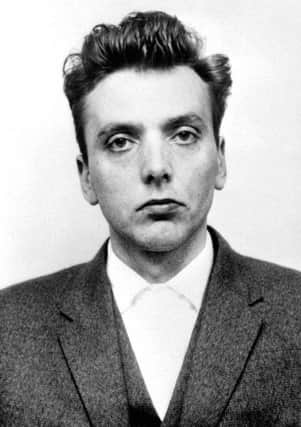Serial killer Brady's burial plans not disclosed at inquest


Christopher Sumner, senior coroner for Sefton, ruled out neglect and self-neglect as contributing factors to the death of the 79-year-old at an inquest held at Bootle Town Hall, Merseyside, yesterday.
Mr Sumner had previously refused to release the body of the killer, who died on 15 May, until he was given assurances his ashes would not be spread on Saddleworth Moor, where the bodies of three of Brady’s and Myra Hindley’s five child victims were found.
Advertisement
Hide AdAdvertisement
Hide AdTwelve-year-old victim Keith Bennett is also believed to have been buried on the moor, but his remains have never been found.
Brady’s body was kept under police guard until it was released to his lawyer Robin Makin on 18 May, after he said there was “no likelihood” the ashes would be scattered on the moor.
Yesterday the coroner’s court heard the serial killer, also known as Ian Stewart-Brady, had asked for locked briefcases to be removed from his room at Ashworth high security hospital hours before his death at 6:02pm.
Consultant forensic psychiatrist Dr Noir Thomas said that at 12:30pm on 15 May medics concluded Brady, who suffered from lung disease emphysema, was nearing death.
He said: “He asked for his solicitor to be notified and requested that his locked briefcases be removed from his room. These were sealed and locked in the director of security’s office.”
Following the inquest, a spokesman for Mersey Care NHS Trust, which runs the hospital, said Brady’s possessions had been given to Mr Makin, the executor of his will.
The inquest, which lasted less than 45 minutes, heard Brady was diagnosed in 1985 with paranoid schizophrenia, marked by perceptual disturbances, delusional ideas and disorganised thought and speech.
Dr Thomas said: “His 32-year detention at Ashworth Hospital was largely marked by hostility, opposition to his care and treatment, allegations of brutality, serial complaints and insistence of interference by the Home Office.”
Advertisement
Hide AdAdvertisement
Hide AdThe court heard Brady had been on intermittent hunger strike since 1999 and was fed by a nasogastric tube, but his feed was often coupled with an acceptance of diet and fluids from select staff.
Mr Thomas said: “In recent years there was ongoing evidence of intractable narcissism with marked grandiosity, a lack of empathy, demanding and entitled behaviour.”